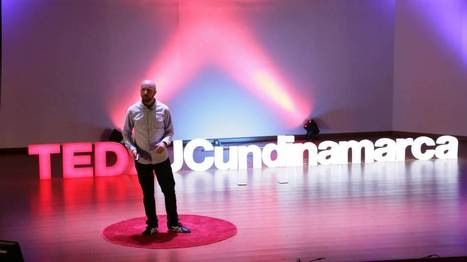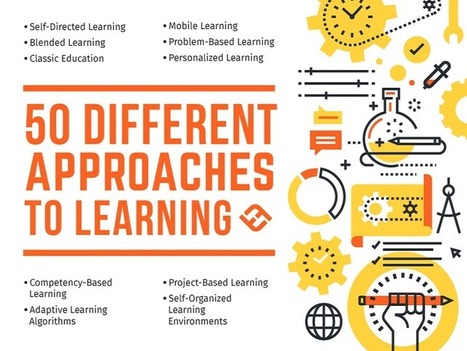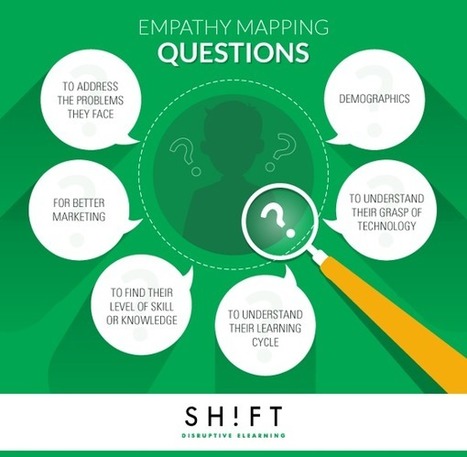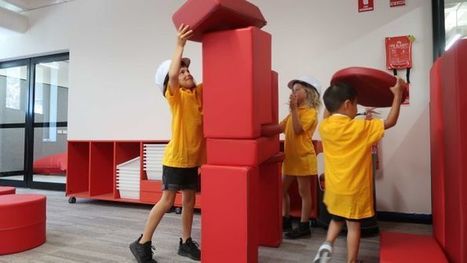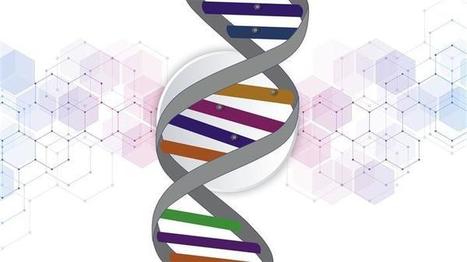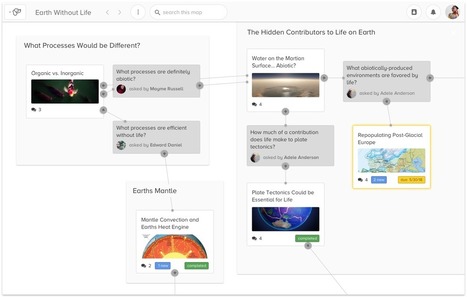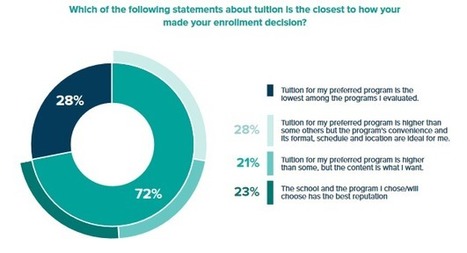 Your new post is loading...
 Your new post is loading...
What are the core competencies that faculty innovators need in order to be successful in making sustained changes in and beyond their classrooms? While sitting under the starry Arizona desert sky near Bioshphere 2 during an NSF-sponsored workshop focused on the intersections of STEM education; diversity, equity, and inclusion; and innovations in learning, we decided to bring this question to our colleagues working in higher education learning innovation.
A few weeks later, we gathered with colleagues at the bright new offices of Duke University Learning Innovation for a meeting of HAIL (Harvesting Academic Innovation for Learners). We used this opportunity to ask participants to respond to and reflect upon a list of seventeen competencies, which were developed with Research | Innovation | Scholarship | Education (RISE) at the University of Michigan Medical School. We later shared this list with the readers of Inside Higher Ed (IHE) and asked them to respond. The dialogue that developed yielded a range of insights.
Via Kim Flintoff
Online learning, new media, connectivism, MOOCs, personal learning environments, new literacy, and more from Stephen Downes
Via juandoming
In OLDaily this week, Stephen Downes, in a comment on a post by Sasha Thackaberry, makes what to me is an astute point – that the future of education is not the same thing as the future of colleges. This was the trap that the webinar hosted by Bryan Alexander, with invited speaker Cathy Davidson,…
Tech leaders need to put AI and its subcategories into practice--and into common business vocabulary that everyone can understand.
Via Charles Gerth
Clean up your online presence
Instantly get a list of all your accounts, delete the ones you are not using.
Via Nik Peachey
How do you make sure your employees, with their 21st-century attention spans, are finishing learning effectively, and actually enjoying your courses?
Via EDTECH@UTRGV
At a time when AI and machine learning stand poised to replace many rote human tasks, are schools and colleges preparing the workers of tomorrow? And are business leaders creating the enterprise cultures that will support continuous learning in a climate of constant disruption?
In this podcast, Heather McGowan, a thought leader at the intersection of education, business, and technology, chats with Connected Futures executive editor Kevin Delaney. About how the very foundations of learning need to be disrupted, for what she calls the Augmented Age – a time when human ingenuity, creativity and empathy will separate us from the machines.
Via Edumorfosis
Learning becomes invisible when we empower each of us to learn our own way. Removing structures of control opens possibilities. The end outcomes or goals of an experience are neither dictated nor determined from the start, but instead emerge as learning develops. Such experiences include free play, self-organized learning communities, authentic problem-based learning, and experimentation to acquire new knowledge.
Via Nik Peachey, juandoming
Great article Zach Groshell
“It’s time to change the direction of the arrow"
“students are the ones driving the learning and are empowered to purs…
|
7,654 Likes, 68 Comments - ABI | Hot guy in tech (@forgoodcode) on Instagram: "Swap out some Netflix time for the best YouTube channels that feed your brain as they entertain.
..."
Individuals across higher education—administrators, faculty, architects, and others—increasingly recognize that physical classroom spaces need to be designed to better accommodate active learning. This means making classrooms more flexible in all aspects, including furniture, ways of sharing content, writing surfaces, and power sources. At Penn State, we believe that the professional development we design to support faculty in these spaces must be flexible as well.
For some faculty, this means finally having a space where they can engage students in the kinds of learning activities they've dreamed about or that they've attempted in more constrained traditional spaces. Others find themselves in flexible spaces and report wishing they'd had more notice to better prepare their instruction. Still others find themselves in newly designed rooms, differently appointed from those in which they're accustomed to teaching, unsure as to what to do.
In rethinking physical classroom spaces, scholars have long recommended that considerations include human-centered design, principles of learning, and diverse learning-focused technologies. More recently, the Learning Space Rating System is built on seven principles of learning space design, which describe the extent to which a given space promotes active learning.
Via Kim Flintoff
"Education sprouts in many forms depending on how you look at it. Our views of what it should look like and how it should materialize depend on our value of it and our experience with it ..."
Via Leona Ungerer
eLearning designers must first understand their target audience and then build content around their needs, limitations, preferences, and wants.
Via Ana Cristina Pratas
It is a public school with no classrooms, school bells, year levels or exams — as we know them.
Opening next week in Sydney, Lindfield Learning Village promises to break the mould and "change the measures of success", according to its principal.
"The education system we currently have in place was developed over 100 years ago to produce factory workers, and obviously that's not what we need to be producing in this era," said principal Stephanie McConnell, one of the architects of the new education model.
Ms McConnell gave 7.30 an exclusive first look inside the new school, which will open its doors to students from kindergarten to year 10 next week. Eventually it will host students up to year 12.
Via Kim Flintoff
Each year, the EDUCAUSE Learning Initiative surveys the higher education community on key issues and opportunities in postsecondary teaching and learn
Via juandoming
Mixkit is a curated gallery of high-quality videos and animation, made by some of the world’s most talented creators, with all content licensed for free.
Via Nik Peachey
I’ve often heard students tell me they studied for hours on a test only to fail. Why? It is not unusual for some students to review what they already know and skip more difficult tasks. Yet evidence exists that providing timely, effective feedback is particularly beneficial for struggling learners. It is this feedback that allows students to differentiate what they know from what they don’t—metacognition.
Via John Evans
Colleges need to have a social media presence to attract and hold Generation Z’s attention as well as to address their academic, personal, and career needs.
Via EDTECH@UTRGV
"As schools and districts try to reduce textbook costs and digitize instructional resources, one of the struggles many teachers have is finding good repositories of open education resources (OER)."
Via EDTECH@UTRGV
Beagle Learning works with schools to teach problem-solving and critical thinking in the classroom. Use our AI-powered tool to gather questions and get a digest in minutes.
Via Nik Peachey
Our Vice President, Conor Gilligan, recently interviewed Clark Quinn about his recent book ‘Millennials, Goldfish and other Training Misconceptions.’
Via juandoming
Online learning, new media, connectivism, MOOCs, personal learning environments, new literacy, and more from Stephen Downes
Via juandoming
|






 Your new post is loading...
Your new post is loading...




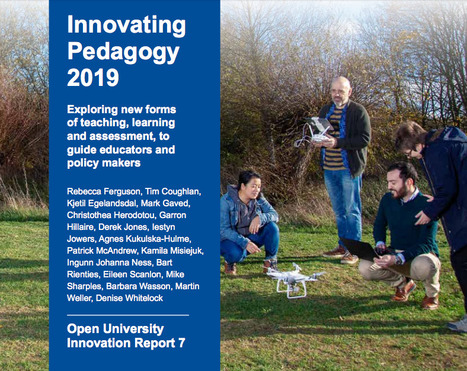


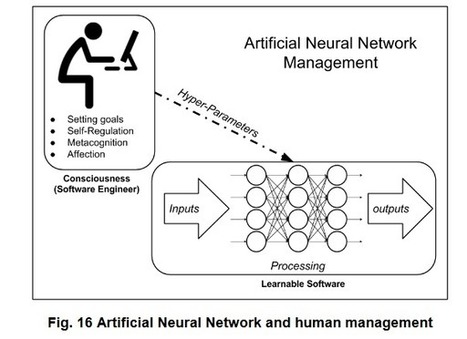

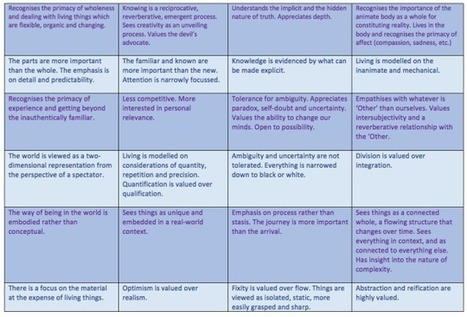




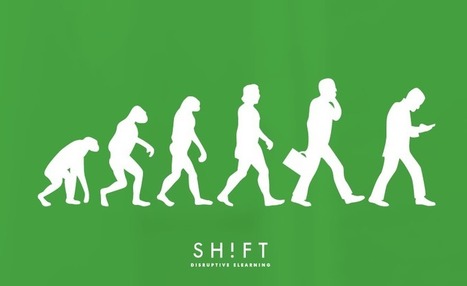
![[Podcast] Disrupting Education, for the Augmented Age | Training and Assessment Innovation | Scoop.it](https://img.scoop.it/FaQWkjI5jkLkFdQ7g8he0Dl72eJkfbmt4t8yenImKBVvK0kTmF0xjctABnaLJIm9)
